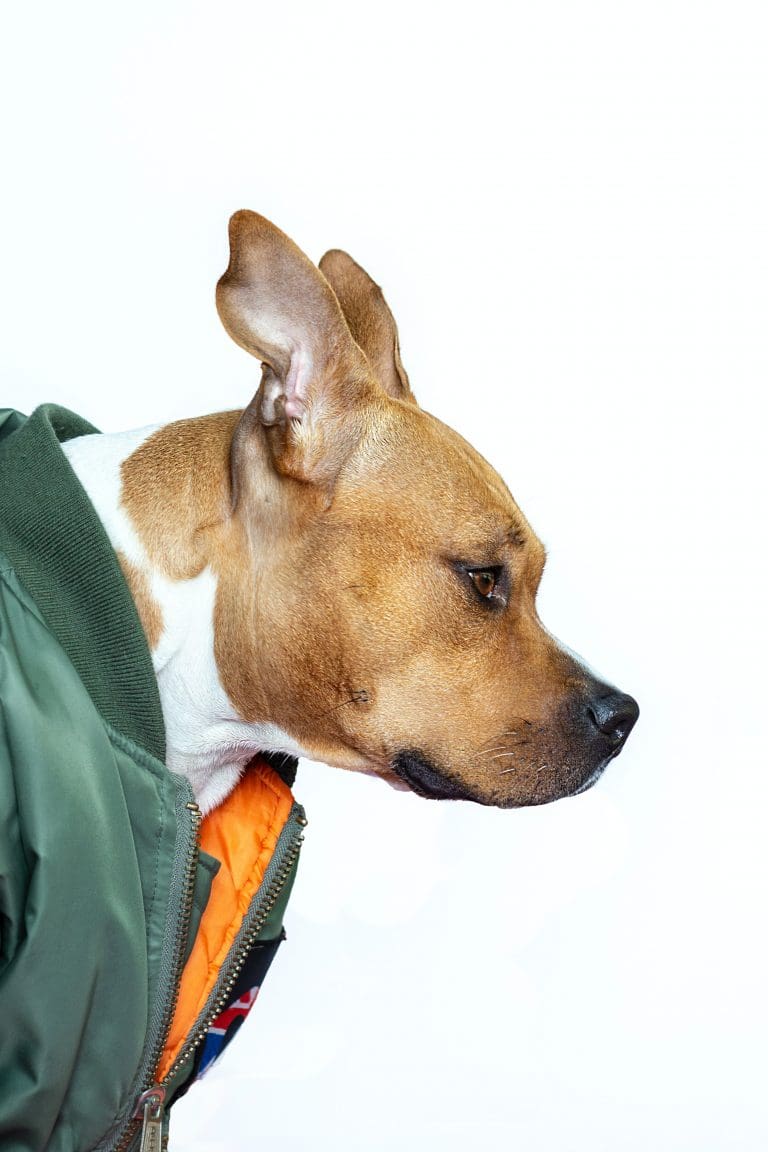How Often Do Dogs Need Shots?
Post Date:
December 10, 2024
(Date Last Modified: November 13, 2025)
Canine vaccination schedules, vaccine categories, and individual health considerations.
Vaccination basics for dogs
Vaccines aim to stimulate the dog’s immune system to recognize and respond to specific pathogens rather than rely on passive protection from external sources.
Maternal antibodies transferred through colostrum can neutralize vaccine antigens and commonly interfere with effective vaccination until roughly 6–16 weeks of age [1].
Active immunity develops as the animal’s own immune cells make antibodies and memory cells after vaccination, while passive immunity from maternal antibodies fades over time; a primary vaccine series helps ensure reliable active immunity once maternal interference declines [1].
Primary series doses are given to build initial protective immunity, and booster doses are used later to maintain or extend that protection depending on the vaccine and exposure risk [1].
Core vs non‑core vaccines
Vaccine recommendations are grouped into “core” vaccines that are routinely recommended for nearly all dogs and “non‑core” vaccines that are given based on specific risk factors or geography [2].
- Core vaccines typically include rabies, canine distemper virus (CDV), canine parvovirus (CPV), and canine adenovirus (CAV) because of their severity and widespread distribution.
- Common non‑core vaccines include Bordetella bronchiseptica (kennel cough), Lyme disease (Borrelia burgdorferi), leptospirosis, and canine influenza; these are selected when lifestyle, travel, or local disease prevalence increases risk.
Classification depends on regional disease prevalence, lifestyle factors (e.g., boarding, hunting, exposure to wildlife), and individual patient health status, as advised by major veterinary bodies [2].
Puppy vaccination schedule
Puppies receive a primary series of vaccines because maternal antibody levels vary and multiple doses increase the chance of successful active immunization.
Primary vaccine series are commonly given at 6–8 weeks, 10–12 weeks, and 14–16 weeks of age to cover the period when maternal antibodies are waning and the puppy’s immune system can respond [3].
Rabies vaccination is typically administered at about 12–16 weeks of age, with exact legal minimum ages varying by jurisdiction and vaccine product [4].
Because maternal antibodies may block vaccine response in some pups at earlier doses, the series of two or three spaced doses increases the probability that at least one dose is effective once maternal titers decline [3].
| Age window | Common vaccines given | Notes |
|---|---|---|
| 6–8 weeks | Distemper, parvovirus, adenovirus (DAPP) | Start primary series; maternal antibody interference possible [3] |
| 10–12 weeks | Second DAPP dose; consider leptospirosis and Bordetella if indicated | Boosts immune response; tailor non‑core vaccines by risk [2] |
| 14–16 weeks | Final DAPP dose; rabies (where required) usually at or after this window | Final primary dose to close coverage gap; local rabies laws apply [4] |
| Adult baseline | Record and plan boosters | Establish vaccine history for future interval decisions [3] |
Adult dog booster schedule
After a completed puppy series, many clinics use a 1‑year booster to ensure adequate immune memory before extending intervals for some vaccines [3].
For healthy adult dogs, core vaccines such as distemper and parvovirus are commonly boosted every 3 years after the initial adult booster, while some rabies products and local laws drive 1‑year or 3‑year rabies intervals depending on region and product labeling [4].
Non‑core vaccines like Bordetella or leptospirosis are often given annually when the dog’s lifestyle or local disease risk warrants more frequent protection [2].
Even when a vaccine is not required every year, an annual physical exam is commonly recommended to reassess risk, review vaccine history, and update any indicated immunizations [3].
Senior dogs and special medical considerations
Immune function generally changes with age, and measurable declines in cellular and humoral responses are often reported in dogs starting around 8 years of age, affecting vaccine response and risk–benefit calculations [5].
For dogs with chronic disease, immunosuppression, or a history of vaccine reactions, veterinarians commonly individualize schedules by delaying non‑essential vaccines, using single antigen products, or relying on titers when validated correlates exist [5].
Shared decision‑making with the owner includes weighing the dog’s likely exposure, comorbidities, and the potential for reduced vaccine efficacy or increased adverse event risk in frail patients [5].
Lifestyle and environmental risk factors
Dogs that board, attend daycare, participate in shows, or live in multi‑dog environments face higher exposure risk and may require more frequent or earlier non‑core vaccinations such as Bordetella or canine influenza [2].
Regional prevalence of vector‑borne or environmental diseases affects vaccine choices; for example, areas with higher leptospirosis or Lyme disease activity commonly push clinicians to recommend those non‑core vaccines for at‑risk dogs [2].
Travel to other regions or international movement often requires specific proof of rabies vaccination and documentation, and some events or grooming/competition venues may require up‑to‑date records for entry [4].
Duration of immunity and titer testing
Duration of immunity varies by antigen; for some agents like distemper and parvovirus, measurable protective antibody levels can persist for multiple years and are used to support extended intervals [1].
Serologic titer testing measures circulating antibodies and can provide evidence of prior exposure or vaccination; validated correlates of protection exist for certain diseases such as canine distemper and parvovirus, allowing titers to guide booster decisions in some cases [3].
Titers do not provide immunity measures for every disease, can be more costly than routine boosters, and results require clinician interpretation; many clinics reserve titer testing for dogs where altered vaccine protocols are desired [3].
Adverse reactions and vaccine safety
Mild post‑vaccine reactions such as localized soreness, transient lethargy, or a low‑grade fever most commonly occur within 24–72 hours after vaccination and typically resolve without intervention [5].
Severe immediate reactions such as anaphylaxis are rare but can occur; clinical signs often appear within minutes to hours and require emergency treatment including epinephrine and supportive care [5].
Clinicians document and report suspected vaccine adverse events to national databases and the vaccine manufacturer; reporting pathways and recommendations are provided by veterinary professional organizations and regulatory agencies [4].
For dogs with known allergic reactions, strategies include using single‑antigen vaccines, premedication where appropriate, or spacing vaccines and monitoring closely during administration [5].
Legal, boarding, and travel requirements
Rabies vaccination laws and required documentation are set at the regional or national level, and many jurisdictions require proof of an initial rabies vaccine and periodic revaccination according to local rules [4].
Many boarding facilities, groomers, and dog sports organizations require proof of up‑to‑date core and certain non‑core vaccines (for example, Bordetella or canine influenza) as a condition of entry to reduce transmission risk in group settings [2].
International travel commonly requires an official rabies certificate and may impose additional requirements such as waiting periods or quarantine depending on the destination and the dog’s vaccination history [4].
How veterinarians individualize schedules
Veterinarians use a risk assessment that includes the dog’s history, lifestyle, travel plans, local disease prevalence, and comorbidities to tailor vaccine recommendations for each patient [3].
Clinic protocols often follow professional guidelines but are adapted by clinicians for individual cases; documentation of informed consent and the agreed‑upon plan is part of routine medical record keeping [2].
When evidence supports extended intervals or titer‑guided decisions, veterinarians discuss the benefits, limitations, and costs with owners and record the individualized schedule along with any monitoring measures [3].
Sources
- merckvetmanual.com — Merck Veterinary Manual.
- wsava.org — World Small Animal Veterinary Association guidelines.
- aaha.org — American Animal Hospital Association vaccination guidelines.
- cdc.gov — Centers for Disease Control and Prevention rabies and travel rules.
- avma.org — American Veterinary Medical Association resources on vaccine safety and adverse event reporting.






